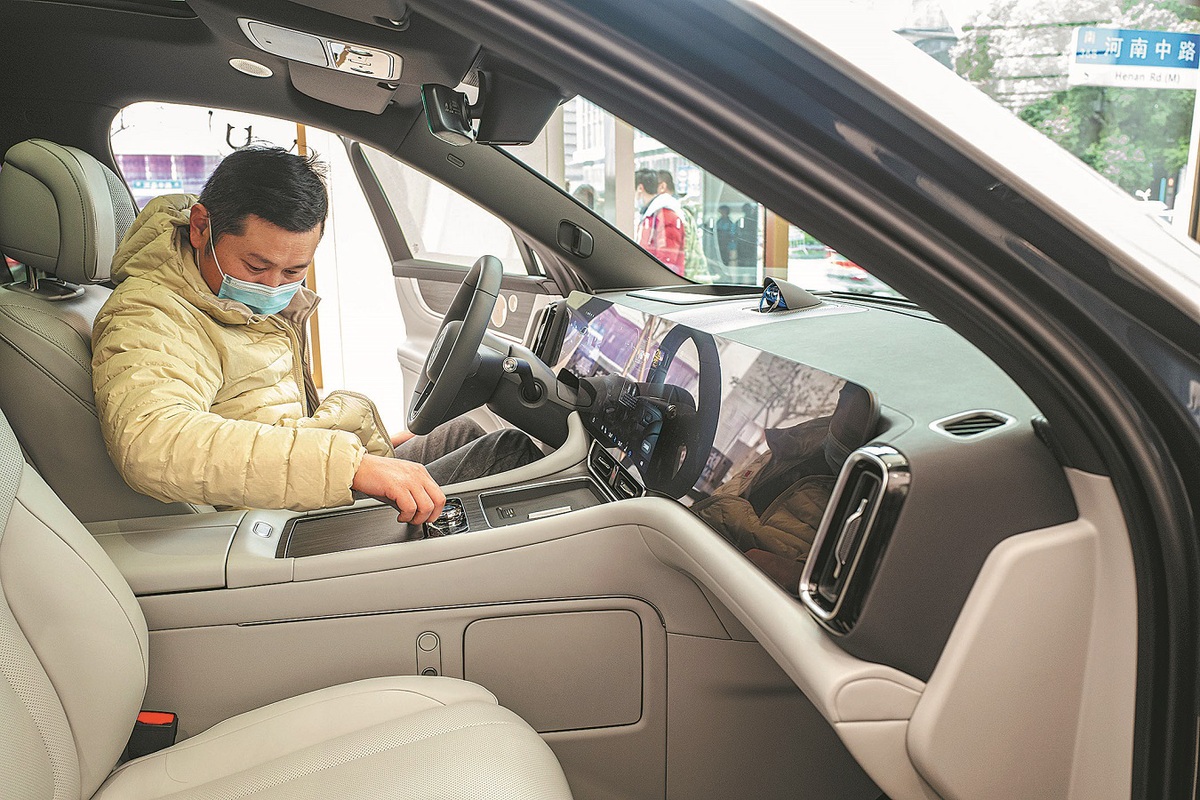China's driverless vehicles taking fast lane to success
As consumers look to upgrade to smarter electric autos, fully self-driving cars are getting closer
By LI FUSHENG | CHINA DAILY | Updated: 2024-03-29 07:07

Tipping point
Gu Huinan, president of Aion, the new energy vehicle arm of GAC Group, believes major change is just around the corner.
He estimates that Level 3 functions will be ready in terms of both hardware and software this year, and Level 4 vehicles, which do not need human intervention, will make a big impact in 2026.
A number of automakers are already testing Level 3 vehicles in China. In late 2023, Mercedes-Benz gained permission from Beijing municipal authorities to test such functions on designated highways in the capital.
To adapt its Level 3 system to local infrastructure and traffic conditions, the German carmaker involved its Chinese research team from the beginning of the project. Since 2021, it has been working to adapt the system to local infrastructure and traffic conditions, such as the country's unique road signs, and markings, construction zones and special lanes, such as those for buses.
IM Motors, an electric vehicle company jointly established by Chinese carmaker SAIC Motor and e-commerce giant Alibaba, has also been given permission to test Level 3 vehicles on highways and expressways in Shanghai.
BMW, which is testing Level 3 vehicles in China, said it has started taking orders for such vehicles in the German market.
As more vehicles with varying levels of autonomy hit the roads, calls are also mounting for clearer legislation on their use. Issues already raised include the length of time a driver's hands can be off the steering wheel, and who should be held accountable for traffic accidents — the driver or the car manufacturer.
Drivers on expressways and major roads have said they have spotted autonomous vehicles with the drivers checking messages, making phone calls or even dozing off.
"There have been fatal accidents involving such vehicles. It is crucial to clearly tell their owners that the functions are to assist them, not replace them as drivers," said Zhang Yinuo, an office clerk in Beijing.
Li Xiang, founder and CEO of Chinese NEV startup Li Auto, said the industry should not exaggerate the capabilities of such vehicles, and remove words like "autonomous" from advertisements.
























